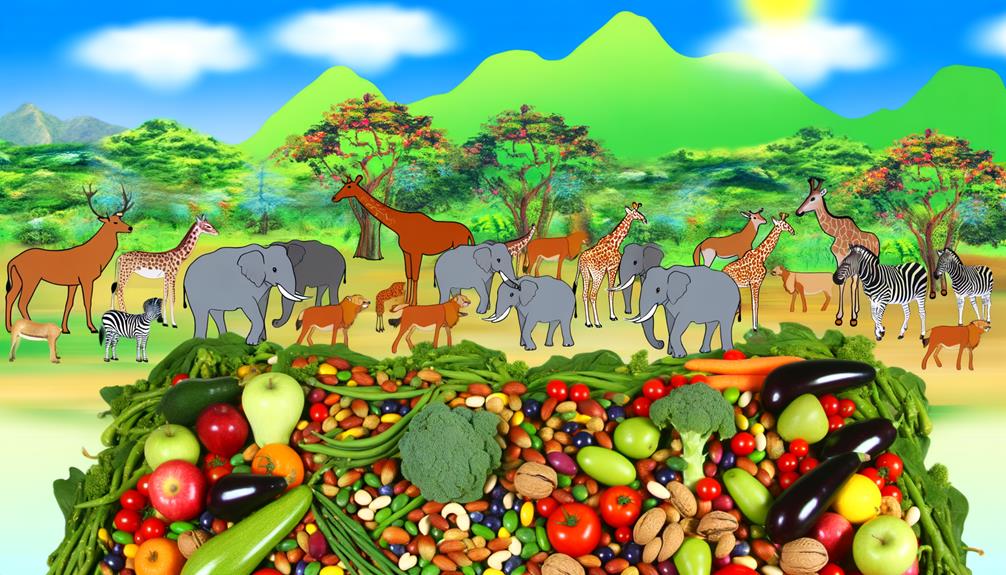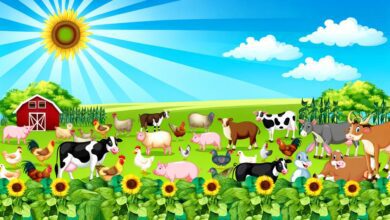It’s no coincidence that you’re looking into a more compassionate lifestyle at a time when the plight of animals is more visible than ever. You’ve likely seen the harrowing images of factory farming or the devastating effects of overfishing, and they’ve stirred something within you—an ethical call to arms. As you pivot towards a vegan way of living, you’re not just choosing a diet; you’re embracing a culture that respects all forms of life and seeks to minimize harm in every action. This guide will lead you through the maze of plant-based alternatives, helping you to navigate the complexities of a lifestyle that’s kind to animals, beneficial to the planet, and nourishing to your body. But it’s not just about what you’ll put on your plate or wear on your back; it’s the beginning of a transformation that could redefine your impact on the world. Stay with us, and you’ll uncover the profound difference one person’s choices can make—a difference that reaches far beyond the individual.
Key Takeaways
- Animal exploitation is prevalent in various industries, including fashion, food, and cosmetics, disregarding animal welfare.
- Embracing a vegan lifestyle is a compassionate and ethical choice to reject animal exploitation and promote animal rights.
- Transitioning gradually to a vegan diet allows for adaptation without feeling overwhelmed.
- Choosing ethical alternatives to animal products, such as plant-based milks, supports a future where animals are respected and not commodified.
Understanding Animal Exploitation
To truly grasp the depth of animal exploitation, it’s essential to recognize how deeply it’s woven into various human industries, often overshadowing the fundamental rights and welfare of animals. When you consider your food, clothing, or even the entertainment you enjoy, it’s likely that exploitation of animals lurks behind the scenes. These sentient beings endure unimaginable animal cruelty for the sake of human convenience and profit.
Think of the clothes you wear; the leather, wool, and silk are often products of immense suffering. Turn to your dinner plate – the meat, dairy, and eggs hail from factory farms where animals are treated as mere production units. Even the cosmetics you use may have been tested on animals in painful and invasive ways, disregarding their capacity to feel pain and fear.
The Vegan Lifestyle Choice
Embracing a vegan lifestyle is a transformative journey that empowers you to align your daily choices with a compassionate, ethical stance against animal exploitation. When you go vegan, you’re not just rejecting meat and dairy; you’re taking a stand against the harm and suffering inflicted upon sentient beings. It’s about nurturing a deep respect for all life and fostering a culture of kindness.
Educating yourself about the importance of veganism strengthens your resolve. You’ll find that each plant-based meal is an opportunity to serve others by reducing demand for products born of cruelty. Transitioning gradually allows you to adapt without feeling overwhelmed, ensuring your commitment grows stronger with each step.
Here’s a glimpse of the impact you create:
| Action | Positive Impact | Emotional Benefit |
|---|---|---|
| Going Vegan | Saves 100+ animal lives annually | Peace of mind |
| Rejecting Meat/Dairy | Reduces environmental degradation | Connection to Earth |
| Cooking Plant-Based | Nurtures health and creativity | Joy in compassionate living |
Ethical Alternatives to Animal Products
Discover the vast array of plant-based milks, such as almond, soy, oat, and coconut, as ethical substitutes for traditional dairy products. These options not only cater to a compassionate lifestyle but also honor the rich tapestry of cultural food practices that celebrate plant-based nourishment. By choosing these ethical alternatives to animal products, you’re stepping into a movement that’s about more than just personal health—it’s about collective well-being.
When you consider going vegan, you’re making a powerful decision to help animals and reduce the staggering number of creatures killed each year for consumption. Here are some heartfelt reasons to embrace this change:
- Every plant-based meal is a stand against the exploitation of sentient beings.
- By opting for vegan products, you’re supporting a future where animals are respected, not commodified.
- The ripple effect of your choices can inspire others, creating a kinder world for all living creatures.
The path to helping animals doesn’t stop at your plate. Look for cruelty-free personal care items and cosmetics, which ensure that no being has to suffer for your beauty routine. Embracing a vegan lifestyle is a profound way to serve others—by extending your compassion beyond humanity to all earthlings.
Veganism and Global Impact
Choosing a vegan lifestyle propels a global movement towards a sustainable and ethical future, significantly reducing the suffering of animals and the strain on our environment. By stepping into veganism, you join a compassionate community dedicated to making choices that honor our planet’s biodiversity and ecosystems. Each person’s shift to a plant-based diet contributes to a collective effort that lessens the demand for animal products, which, in turn, spares countless animals from exploitation every year.
You’re not just helping animals when you choose to go vegan; you’re also casting a vote for cleaner air, purer water, and a more balanced climate. A plant-based focus addresses the rampant pollution and greenhouse gas emissions that are byproducts of animal agriculture. This positive change in your diet can lead to a healthier life, reducing risks of prevalent diseases and ensuring that you’re part of a solution that’s as beneficial to you as it is to the world around you.
Moreover, your decision influences the market. As more people go vegan, industries pivot towards cruelty-free and sustainable options in food, clothing, and beyond. You’re part of a compassionate wave reshaping global consumption, creating a kinder, greener future for all beings.
Advocacy and Animal Rights
As you adopt a vegan lifestyle for its environmental and health benefits, it’s equally important to champion the rights of animals through active advocacy. Becoming an advocate for animal rights is about more than just personal dietary choices; it’s a commitment to speaking out against the systematic mistreatment and exploitation of sentient beings.
Here are three ways your advocacy can make a profound difference:
- Educate Others: Share the harrowing realities animals face in factory farms, where stressful conditions are the norm, not the exception. Your voice can shine a light on the dark corners of these industries.
- Support Legislation: Advocate for laws that protect animal rights, ensuring that animals are no longer subjected to cruel practices in the name of commerce or research.
- Promote Kindness: Encourage compassionate choices in your community, from supporting local animal sanctuaries to choosing cruelty-free products.
Frequently Asked Questions
How Can Veganism Stop Animal Cruelty?
You’ll stop animal cruelty by making compassionate choices, like choosing cruelty-free alternatives. Embracing veganism reflects ethical considerations and lessens environmental impact, serving others by creating a kinder, more sustainable world.
Does Veganism Actually Save Animals?
Yes, your switch to veganism is like planting a forest—one compassionate choice at a time, you foster a world where ethical consumption thrives, magnifying the plant-based impact and saving countless animals with every diet shift.
Why Do Vegans Avoid Animal Products?
You choose to forgo animal products, embracing a tapestry of ethical considerations, health benefits, and environmental impact. It’s a personal choice reflecting compassion, a plant-based focus, and a commitment to serving others.







